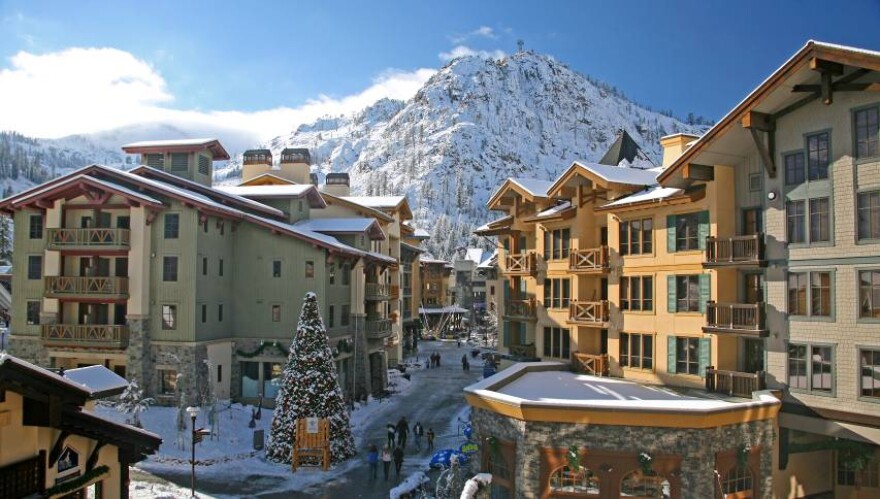Olympic Valley residents who want to incorporate their town had a big win this week, but they’ve got a long road ahead, and not everyone in the community wants a new town.
For the past three years, some Olympic Valley residents have been pushing to incorporate the small mountain community surrounding Squaw Valley into its own town. Currently, Olympic Valley is unincorporated, which means big decisions get made in Auburn, the Placer County seat.
“Which, by the way, is 70 miles away and 5,000 feet lower in elevation. It’s a very different world; it’s a suburb of Sacramento. And we, of course, are a mountain community over 6,000 feet in elevation, and we have a very different take on things.”
That’s Dr. Fred Ilfeld, board chairman of the nonprofitIncorporate Olympic Valley, or IOV. Ilfeld points to nearby Truckee, which incorporated 22 years ago.
“Truckee is a very good example of a mountain town – much larger than we are of course, but similar geography. And looking at before they incorporated and after, no one – no one – disagrees that it is an improvement.”
He cites improvements to police services, roads, and recreational facilities, as well as a commitment to sustainable development, among the benefits incorporation brought to Truckee. The town has also doubled in size – from just over 8,000 in 1993, when it incorporated, to more than 16,000 today.
Still, the early days of incorporation were hard on Truckee, especially when Nevada County gave the town three weeks’ notice before cutting all services. Maggie Shane, who lives in Truckee but owns a second home in Olympic Valley, voices her opposition to incorporation in a video produced by the group Save Olympic Valley, paid for by Squaw Valley Ski Holdings.
“Having gone through an incorporation in Truckee, the beginning was very difficult. And we went through the numbers, and had a much bigger tax base, and we still struggled.”
Opponents of incorporation say that with less than 600 registered voters, the Olympic Valley community is too small to function as a town. Some also say it’s not fair that those few permanent residents would make decisions that would impact the thousands of second home owners in the area.
The primary argument, however, is that it’s risky for the community to leave the safety net of the county. Squaw Valley CEO Andy Wirth puts it this way:
“We think our interests are seen to when we’re working through a tried, true, and tested system. One that’s been in place for 60 years.”
Last year, an independent consultant drafted a financial analysis of the incorporation, which concluded that Olympic Valley would not be financially viable as a town. Ilfeld and the IOV appealed, noting 31 errors in the analysis. This week IOV announced that the California State Controller agreed with 18 of the issues it raised, totaling gains to the Olympic Valley town budget of more than $10 million over the next 10 years, enough to make the town financially stable.
To state the obvious: incorporating a town is a complex process. The back and forth over the draft financial analysis has already taken close to two years, and the appeal cost $150,000. Before it can be finalized, Olympic Valley will need to negotiate a fee to pay Placer County to compensate for lost revenue. Fred Ifeld explains.
“We’re a small community, a little over a thousand residents, and we don’t cost a lotta money to do things up here. But we generate a lot of money. We generate about $5 million annually in property taxes and Transient Occupancy Taxes. We are a golden goose for Placer County.”
IOV will then need to stump up around $200,000 for an environmental impact report, which could take another year to put together. A final proposal then goes to the Local Agency Formation Commission.
“And they decide, after public hearings, whether to allow the people of this community to vote on whether or not we want a town.”
All told, it could be another two years before Olympic Valley residents even vote. But the opposition says even a vote wouldn't be fair, given that some 539 registered local voters would be deciding the fate of more than 7500 homeowners.




